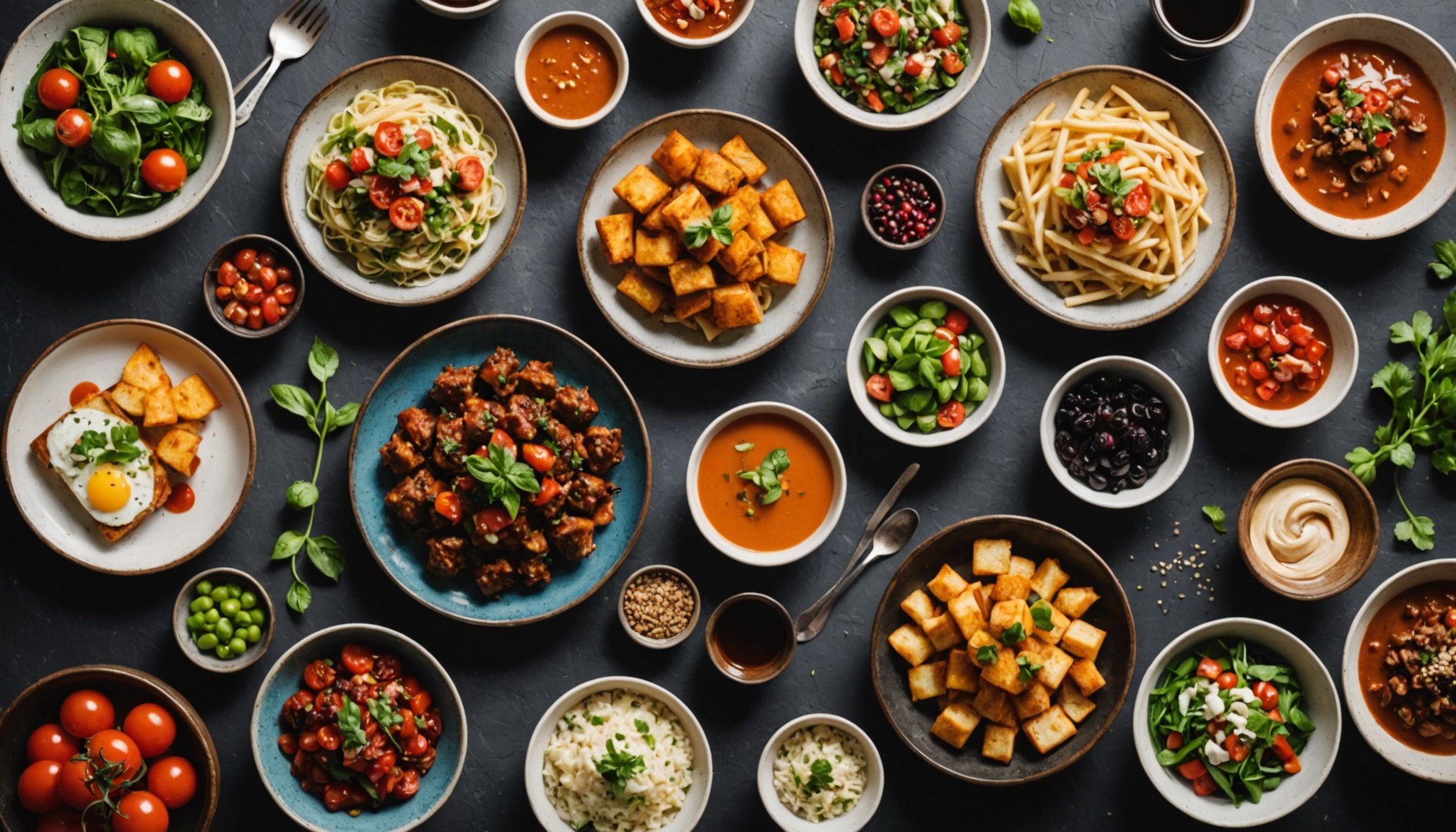Understanding UK Import Regulations
Navigating UK import regulations is essential for any gourmet food business aspiring to enter the British market. These regulations are designed to ensure food safety and quality, and compliance is non-negotiable. The Food Standards Agency (FSA) plays a pivotal role in this landscape, ensuring food safety and enforcing regulations alongside other bodies like HM Revenue & Customs.
Gourmet food businesses must adhere to regulations covering everything from labelling to food contaminants. The FSA, for example, sets standards for labelling accuracy, verifying that all ingredients are clearly listed to help consumers make informed choices. Non-compliance can result in penalties or the denial of entry for goods, highlighting the importance of understanding these rules.
In the same genre : Mastering the Art of Launching a UK Language Learning App: Navigating EdTech Guidelines Efficiently
Beyond understanding, businesses must also actively manage compliance. This includes staying updated on any regulatory changes and incorporating them into their operational practices. Regulatory bodies often provide guidance documents to aid businesses in maintaining standards.
In summary, understanding and adhering to UK import regulations is not merely procedural; it is critical for ensuring that products are safe and market-ready, thus facilitating successful entry into the UK gourmet food market.
Also to see : The Ultimate Handbook for UK Craft Breweries: Mastering Food and Beverage Labeling Regulations Step-by-Step
Essential Documentation for Importing Gourmet Foods
Importing gourmet foods into the UK involves several critical steps, with import documentation being a cornerstone of the process. Proper documentation not only facilitates smooth customs clearance but is also essential for complying with regulations and maintaining food safety. The filing of accurate customs declarations is compulsory. These declarations include detailed information about the goods, like their value and origin, ensuring they align with the UK’s import regulations. Incorrect or incomplete declarations can lead to delays or fines.
Additionally, health certificates are crucial, especially for perishable items. These certificates verify that the items meet the necessary safety standards and have been handled under satisfactory conditions. It’s a mandatory requirement for most types of food imports and guarantees that the products adhere to health norms.
Lastly, importers may need to obtain specific import licenses. Depending on the product category, certain licenses ensure that the items comply with specific safety and quality standards. Each type of food may have unique requirements, so it’s vital to understand what permits and licenses apply to your goods. Compliance with these documentation requirements is pivotal for a successful importation process.
Compliance Tips for Food Businesses
Ensuring compliance with UK import regulations is vital for any gourmet food business. Regularly reviewing and updating your processes is crucial. It’s advisable to establish a comprehensive checklist. This aids in monitoring the dynamic regulatory environment, ensuring adherence to all relevant rules.
Technology can significantly facilitate compliance management. By investing in compliance software, businesses automate documentation and flag discrepancies efficiently. Such tools are particularly beneficial for tracking changes in regulations.
A common pitfall for new food businesses is overlooking labelling accuracy. Labels must clearly list all ingredients to align with FSA standards. Mistakes here can lead to severe penalties or entry denials. Therefore, dedicating resources to a thorough product labelling audit is wise.
Regular staff training ensures everyone understands the latest regulations, fostering a culture of proactive compliance. Collaborating with the Food Standards Agency provides access to valuable resources. This collaboration can guide businesses through complex regulatory landscapes.
Lastly, networking with other industry professionals can offer insights into compliance strategies. By sharing experiences and solutions, businesses can learn to navigate regulations more effectively. Engaging with these resources equips food import businesses to tackle compliance challenges confidently.
Overcoming Challenges in the Import Process
Importing gourmet foods presents various import challenges that can hinder smooth market entry. Understanding the nuances of tariffs and taxes is pivotal. These financial constraints can significantly impact a gourmet food business‘s bottom line, affecting pricing strategies and profit margins. Exploring tariff relief options or trade agreements could be beneficial.
Logistics issues such as delays at customs often arise due to mismanagement or unforeseen circumstances. To navigate customs delays, ensure all documentation is accurately prepared and submitted promptly. This can help in mitigating prolonged hold-ups and facilitate a smoother customs process.
One of the profound challenges is product sourcing issues. It requires connection with reliable suppliers who can deliver quality goods consistently. Maintaining an open line of communication with suppliers and regularly assessing their performance is prudent for ensuring reliability.
Bullet Point Tips:
- Understand your tariff structure.
- Prepare precise customs documentation.
- Maintain strong supplier relationships.
Overcoming these hurdles requires strategic planning and proactive problem-solving. By being informed and prepared, businesses can better manage logistics, finance, and supplier relations, fostering a successful import process.
Strategic Tactics for Successful Launch
Launching a gourmet food venture in the UK requires strategic insights to ensure successful market entry. Developing a precise market research technique is crucial for understanding consumer preferences and identifying gaps in the market. Analysing competitor strategies can also provide valuable insights. Engaging in market surveys and attending food expos could bolster product positioning and consumer connection.
Crafting a unique selling proposition (USP) is essential. Your USP should highlight what sets your products apart, whether it’s an exclusive flavour, sustainable sourcing, or a distinctive brand story. This differentiation anchors your brand in the gourmet market and attracts discerning customers looking for unique experiences.
Networking with industry experts can open doors to new opportunities and insights. Establish connections with compliance consultants to navigate the regulatory environment confidently. Delve into collaborative projects with chefs, gourmet bloggers, or market influencers to widen your brand’s reach and credibility.
Bullet Point Tips:
- Conduct comprehensive market research.
- Develop a robust unique selling proposition.
- Network with industry insiders.
By integrating these tactics, your gourmet food business can secure a competitive edge and foster a successful market launch.
Case Studies of Successful Gourmet Food Imports
Exploring case studies of successful ventures in the gourmet food market provides invaluable insights for aspiring importers. These tales of triumph demonstrate effective strategies, innovative practices, and common pitfalls to avoid.
Local Success Stories
Numerous UK gourmet food importers have paved the way with inventive tactics. For example, one company gained traction by emphasizing sustainable sourcing and transparent supply chains, tapping into consumer demand for ethically produced items.
Innovative Import Practices
Innovation in import practices often leads to success. Implementing advanced supply chain management technologies, such as real-time tracking systems, enhances efficiency and reduces delays. Another pioneering approach is forming collaborative partnerships with local producers, which fosters trust and ensures continuous product flow.
Lessons Learned from Failures
However, not all ventures are successful. Learning from unsuccessful cases is crucial. A recurring theme in several case studies is the underestimation of the intricacies in compliance and documentation, leading to costly setbacks.
These examples underscore the importance of thorough planning and adaptability in the gourmet food market. By analyzing these case studies, businesses can tailor their own strategies to foster a successful market entry.
Resources for Further Assistance
Navigating UK import regulations requires more than a basic understanding. Access to robust import resources and compliance assistance can be invaluable. Businesses can utilise government bodies like the Food Standards Agency (FSA) for guidance documents and updates on regulatory changes. The UK government provides online platforms where gourmet food businesses can explore detailed imports information.
For tailored legal advice, consulting firms specialise in food imports, ensuring compliance with local legislation and helping with food safety protocols. Seeking the expertise of these professionals can prevent costly compliance errors.
Joining online communities and food industry networks can also be beneficial. These platforms allow businesses to connect with other entrepreneurs, share experiences, and address common concerns. These connections foster a support system, encouraging mutual learning and problem-solving.
Comprehensive guides offered by trade associations detail the intricacies of importing into the UK. Collaborating with such associations provides businesses access to wider industry insights and compliance tools. By leveraging these resources, businesses can confidently navigate the UK’s import landscape, ensuring their operations meet all regulatory requirements while establishing a strong market presence.











